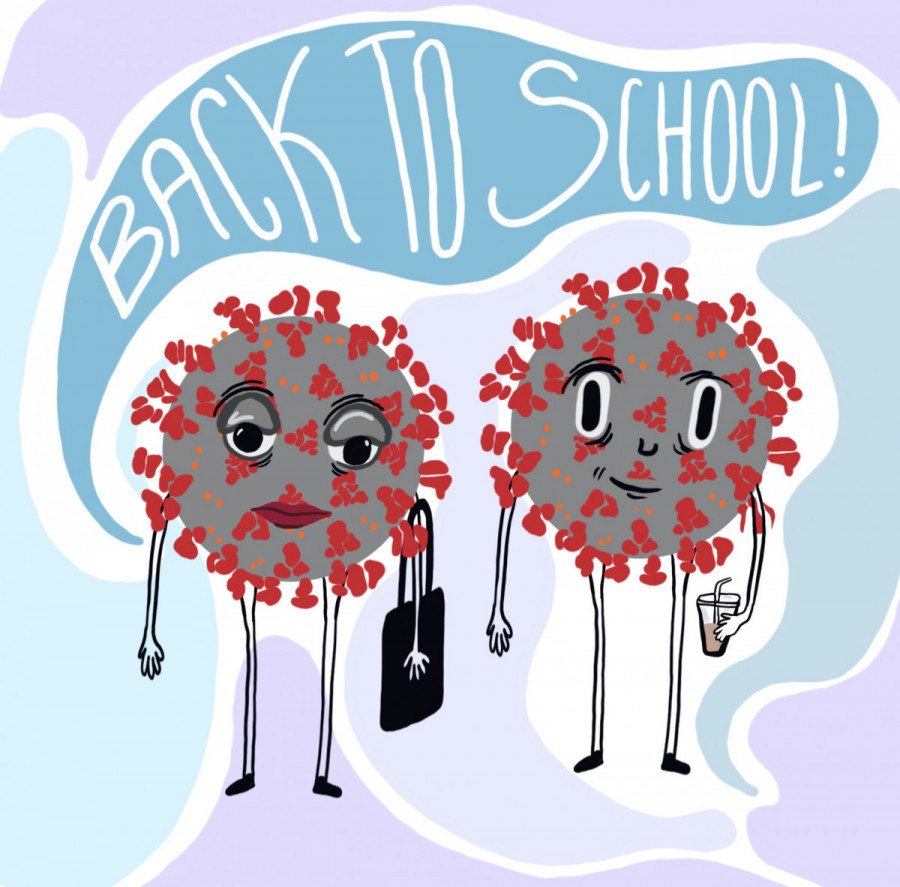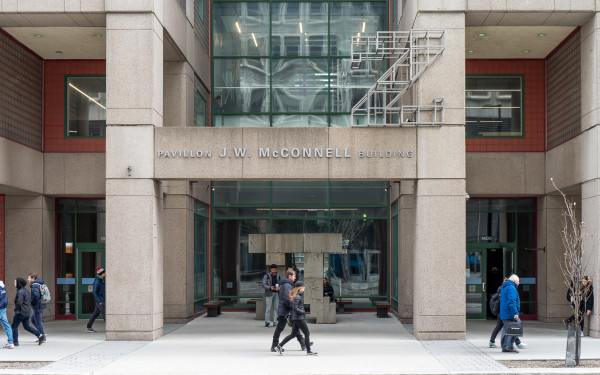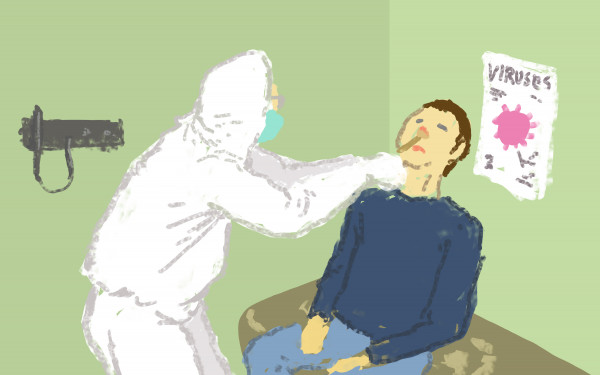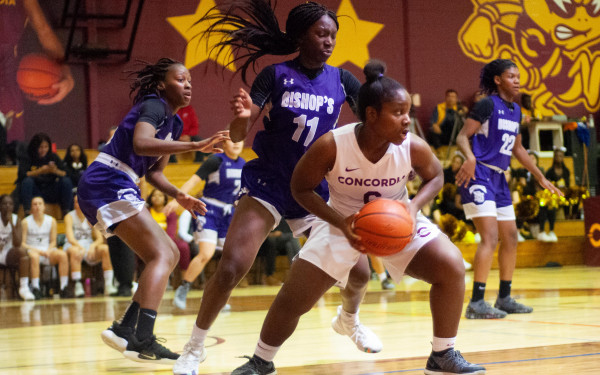EDITORIAL: Concordia’s Indifference to COVID Is Sickening
The first week back to school after winter break is always rough, but for students with health concerns, the anxiety of returning goes beyond the usual class stress. On top of trying to balance classes, work and a social life, some students also have to figure out how to keep from contracting an illness that could incapacitate or kill them.
In his start of semester email, President Graham Carr said that Concordia will “continue to monitor ongoing public health trends,” after a full in-person fall semester. While they may be monitoring the situation, they are not being proactive in protecting students. In reality, immunocompromised people are facing the stress of potentially contracting an illness that could impact them for months or even years.
Protecting immunocompromised students, faculty, staff and others would be much easier if Concordia reinstated its mask mandate, which was lifted on June 23, 2022. The university also never provided any rapid tests to students and stopped its contact tracing protocol in April of the same year. If it had been properly implemented, contact tracing would have been one of the best tools to keep community members aware of their own exposure.
This lack of protective measures comes during a time of record hospitalizations across Quebec. In 2022 alone, the province reported more COVID-19 hospitalizations than it did in 2020 and 2021 combined.
Symptoms have changed. Many infected may not even know they have COVID when coming to class and infecting their classmates. One of the most recent variants, named Kraken, has symptoms like scratchy throat, runny nose, congestion, headache and fatigue. These aren’t usually enough for people to stay home.
Concordia asks “those with symptoms that allow them to leave home” to “consider wearing a mask to protect others,” which completely disregards the safety of community members. Students who want to take a mask offered at one of the dispensers located almost exclusively by entrances risk being unable as they are often left empty.
Students who get sick have to rely on classmates for notes or miss work if they are too unwell to go to classes because there is no mandate for professors to provide them. Some departments even have rules regarding how many classes a student can miss before failing. Concordia has done nothing to ensure that students can recover at home while staying on top of their studies. Many are forced to come to campus sick, making classrooms an unsafe environment for immunocompromised students.
The pandemic forced academic institutions into accessibility, and instead of continuing that accessibility, Concordia seems to have gotten rid of it at its first opportunity.
While Concordia has a form you can fill out if you know you will be sick for two consecutive days or fewer, it barely covers someone with food poisoning, let alone the flu or COVID.
We have already proven that online classes work; notes and slides can be shared via Moodle or email to accommodate students who might be sick or otherwise unable to attend classes for health-related reasons.
Gabriella Dery, a disabled Concordia student, said in part that plenty of accommodations were made for everyone during the at-home COVID semesters. Many of these accommodations have now disappeared as we return to in-person only classes, besides the eConcordia classes, which have always been online.
“The pandemic showed that these things are possible and that you can give more leeway and accessibility to academia,” Dery said.
The pandemic forced academic institutions into accessibility, and instead of continuing that accessibility, Concordia seems to have gotten rid of it at its first opportunity. Concordia’s lack of response to the issue, aside from the occasional ‘we care, stay well’ emails is, in itself, sickening.
New variants are popping up and the number of people getting vaccinated–including boosters– is stagnating. More people are guaranteed to get sick and Concordia seems to have no plan to deal with that reality. The most basic thing they could do is ask everyone to wear a mask.
This article originally appeared in Volume 43, Issue 9, published January 10, 2023.







